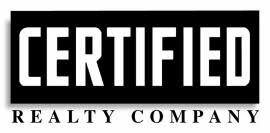
As we move through Spring, 2020 in the current Covid-19 environment, many are wondering how Oregon real estate is being affected by the Coronavirus and what to expect ahead. Press the ‘play’ button to hear this podcast episode.
Some good news is that properties continue to sell in Oregon. This has been assisted by our stable, yet relatively low housing supply and still-favorable interest rates.

It’s helpful to understand some key Covid-19 components in Oregon’s real estate equation. These include macroeconomic factors over which we have minimal control, like interest rates, unemployment rates and our collective housing supply. Elements where individuals have more control include any personal behavior to buy and/or sell, where we ultimately choose to move and other individual decisions, like down payment amount and loan type. The degree and extent that these factors influence Oregon real estate can affect our market.
Real Estate Made Easier
Each real estate sale is unique, yet commonly comprised of a few main ingredients, so let’s hone in on what works best, if you’re in the market to buy or sell an Oregon home. A roadmap for today’s successful transactions include a motivated seller and an equally motivated, well-qualified buyer. That’s because a vital factor responsible for disruption and ‘sale-fails’ in this Coronavirus era typically involves the lending landscape. Well-qualified buyers who are pre-approved tend to keep things sailing smoothest, especially ‘low risk’ buyers with good credit and a minimum 20% down payment.
Looking forward, any reduced housing activity might be traced to the recent trend of increased unemployment claims. Another side effect of the Covid-19 pandemic has been for sellers to make faster price reductions. This response is understandable, given less certainty regarding the length of the Coronavirus impact on our market, including a possible rise in competing seller inventory.
While future outcomes of the Covid-19 pandemic are difficult to perfectly ascertain, another factor contributing to our low home inventory involves home sellers who are waiting before deciding to place their properties for sale. These are homesellers who want to sell, but often don’t have to sell. They’re simply holding off until the dust settles. This could place a significant supply of homes on the market once things settle down. One prospective downside to that equation could be a resulting surge, or even a glut of homes for sale as the Covid-19 pandemic eases.
 Balance & Counterbalance
Balance & Counterbalance
So far, low housing inventory has acted as a counter-balance against the weight of heightened unemployment. In other words, our initial low home supply before the Coronavirus outbreak is still below normal levels, despite a potential lessening of homebuyers. This initially lower housing inventory is further compounded by fewer homes being placed on the market as hopeful homesellers hold off by not selling, at least for now. Low housing inventory tends to prop up home prices.

How Long Will Covid-19 Last?
Detailed predictions on how long the current Coronavirus pandemic will last require viral modeling and is fraught with degrees of uncertainty. That said, as a virus, we can examine several likelihoods to get a sense of the possibilities.
1. Predictions for a Shortened Pandemic
If the current Covid-19 pandemic is relatively short, expect a potential flattening in the growth of home values until Coronavirus concerns level off. The current US federal government response with federal relief payments coupled with increased backing of mortgage lenders to alleviate financial stress on homeowners presages what could be a relatively brief impact. This could also translate to fewer homeowners needing to sell, an important factor in preventing a cascade of events toward a bigger downturn. There’s good reason for such disparate entities as banks, government and other corporations to head off a disaster scenario, since mass foreclosures punish homeowners, banks and many other entities.
2. Limited Shutdown Scenario
Given that acute virus cycle phases are often measured in months and sometimes quarters, a limited shutdown scenario is definitely possible. The rapidity of recent government interventions can be explained by lessons learned from 2008’s Great Recession. Instead of a delayed response, this time we saw a much faster response by flooding the markets with both liquidity and loan guaranties. Such action was less swift during the Great Recession and may better aid the shortest path to recovery.
3. Lengthy Shutdown Scenario
If the current Covid-19 pandemic is multi-year in nature, some real estate markets could mimic a response more akin to 2008-2011, when there was reduced market liquidity and onerous home mortgage requirements accompanied by steeper home value declines. Modeling of a more severe pandemic has been walked back recently, since certain dire projections have as yet failed to occur.
3. Moderate Shutdown Scenario
In the case of a moderately long shutdown, home prices would likely drop, but less severely than during the Great Recession, which saw a greater decline in home values than the Great Depression. Under this scenario, much would depend on government and lender response.

Selling Your Oregon Property?
Certified Realty continues to sell Oregon real estate in all kinds of markets, just like when they first began in 1950. For a free consultation, use the convenient contact form below!